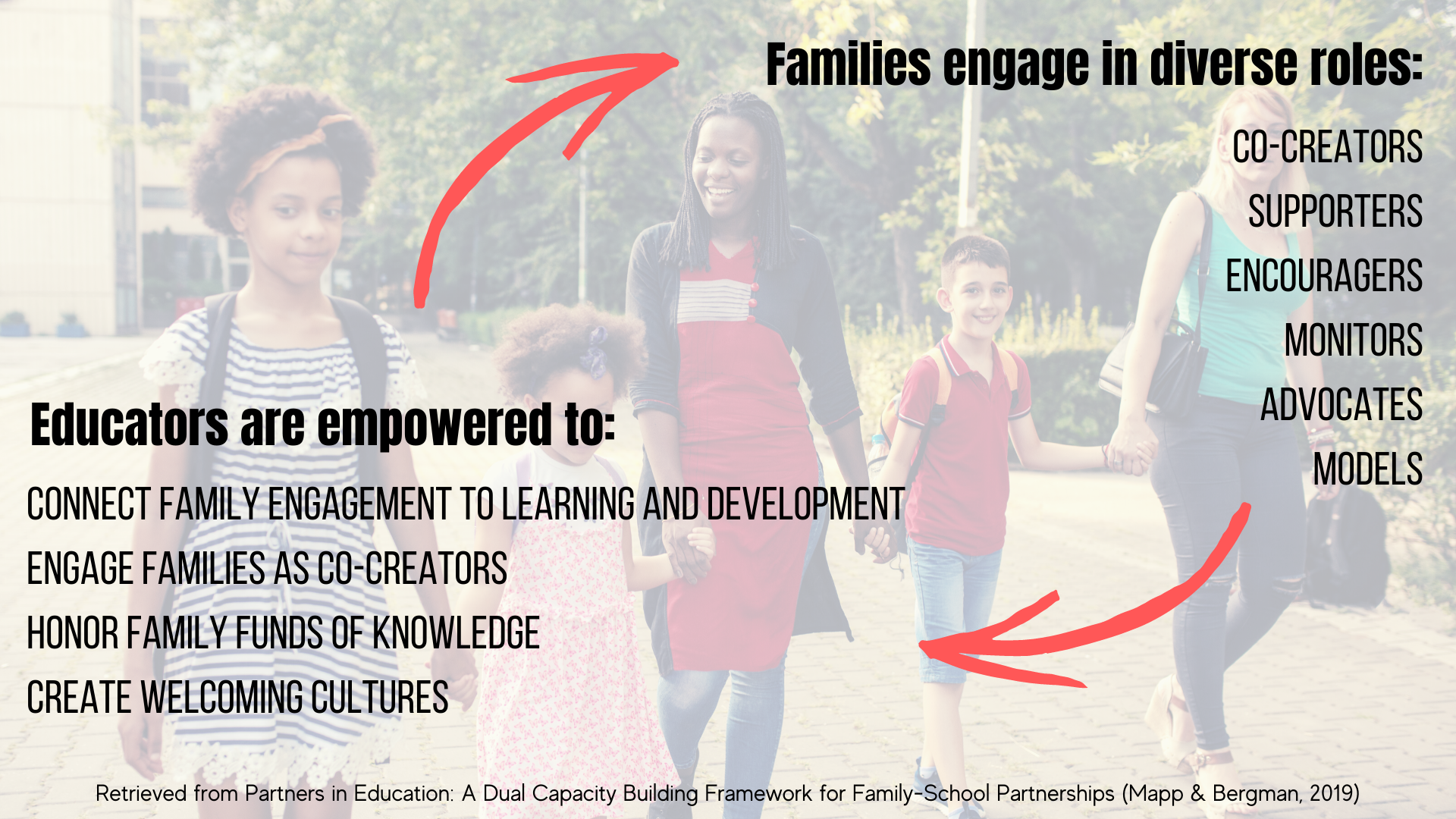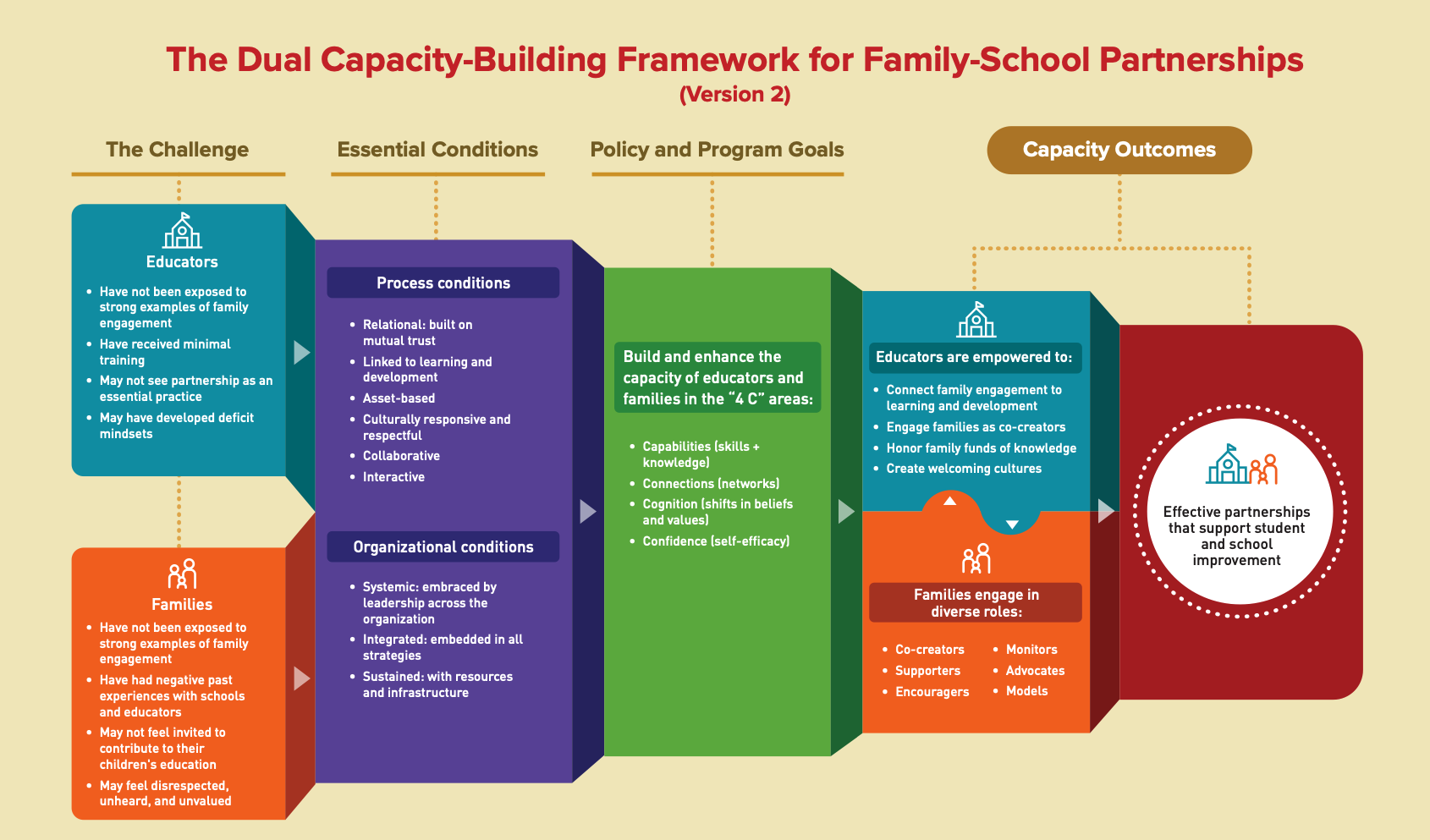Family Engagement: Capacity Outcomes
Once staff and families have built the requisite capabilities, connections, confidence, and cognition, they will be able to engage in partnerships that will support student achievement and student learning... As a result of this enhanced capacity on the part of families, districts and schools are able to cultivate and sustain active, respectful, and effective partnerships with families that foster school improvement, link to educational objectives, and support children’s learning and development.
When schools and districts both (1) meet the Essential Conditions and (2) establish the Policy and Program Goals that should emerge for families and educators, Capacity Outcomes empower both educators and families to effectively collaborate, leading ultimately
to school and student improvement.

How does MTSS support Family-School Partnerships at Tiers 1, 2, and 3?
- Schools and districts need to communicate with families about the school's commitment to prevention and interventions, ensuring the needs of all students are met. All communication should be engaging and accessible through the use of clear language and translation options, as well as shared through a variety of channels on an ongoing basis. Different modalities of communication (e.g., electronic, hard copy, mailed flyers) should be used to ensure all families have equitable access to information.
- Schools and districts should share the critical components of Tier 1 supports with families to build understanding of what all students receive. This communication should include universal screening, helping families to understand why screening is important and how the data is used. Data should be shared transparently with families after each benchmark in a way that builds family capacity to interpret and understand what it means.
- At Tier 2, families should know what interventions are available to children who learn differently. They should also know information about the intervention, such as what skills are being targeted, who's delivering the intervention, how progress will be monitored, and how they can engage with the process. Schools should tap into the existing funds of knowledge that families can provide.
- As the intensity of interventions increase, families should become increasingly engaged in the Data-Based Individualization process at Tier 3. Families of children receiving intensive supports are critical partners, valuing and affirming their expertise in their child and what works (and doesn't).
When schools and families partner together effectively, student and school outcomes can improve. Intentional engagement amongst and between educators, leaders, families, and communities leads all stakeholders to have a part in this work, enabling meaningful shared decision-making, co-creation of ideas, and co-development of programs to support students.
-

Policy and Program Goals
Return to Policy and Program Goals for a refresher on the setting goals for and measuring effective family-school partnerships.
-

Putting Research Into Practice
Review resources for schools and districts to begin the important work of increasing family engagement.
-

The Framework
For resources that demonstrate how family and community engagement efforts can lead to student and school improvements, visit the Dual Capacity-Building Framework for Family-School Partnerships Capacity Outcomes page.
2 From Mapp, K.L. & Bergman, E. (2019). Dual capacity-building framework for family-school partnerships (Version 2). Retrieved from: www.dualcapacity.org.